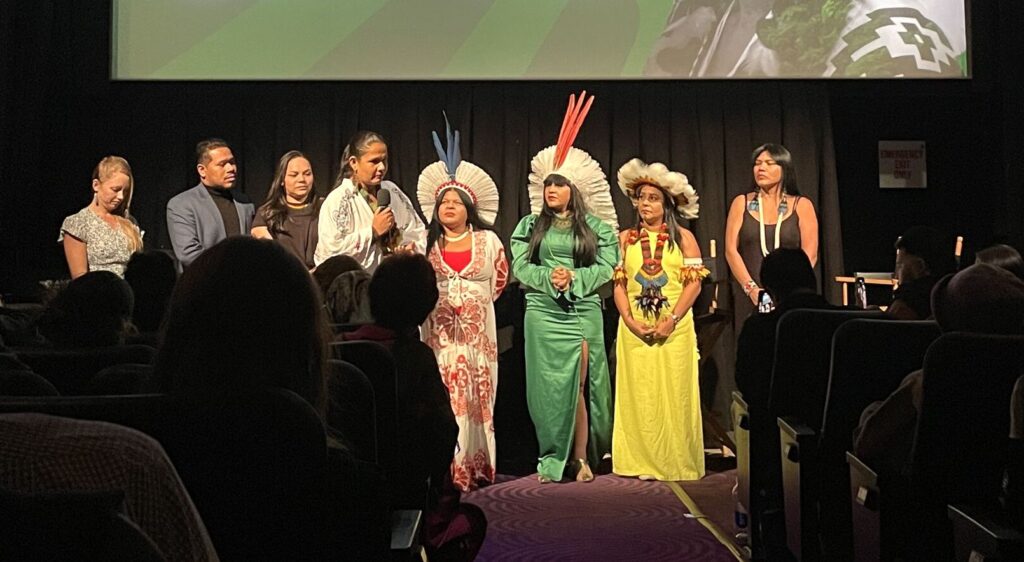
Highlights from Climate Week NYC
October 9, 2024
By Josh Berry
At Climate Week NYC, Equitable Earth shared space and knowledge with many electrifying individuals and great organizations who are working in biodiversity protection, forest conservation, climate tech innovation, social justice, Indigenous Peoples rights, and much more. Here we’re highlighting the most inspiring statements and stories from our partners at Climate Week NYC.
Sônia Guajajara, Brazil’s first Minister of Indigenous Peoples, launched Climate Week NYC at the opening ceremony with a profound speech entitled, “When Nature Speaks, We Listen.” Here are some of our favorite excerpts from Her Excellency’s talk:
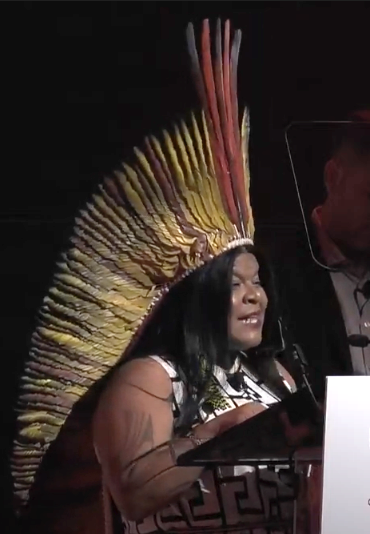
“I bring a message of hope. Indigenous Peoples around the world are alive and we continue to resist. We are the bearers of the traditional knowledge that is necessary for the sustainable management of life on the planet and we continue to fight.
“The importance of Indigenous Peoples in the climate fight cannot be understated. We manage at least one quarter of the world’s lands and our ancestral lands are home to approximately 80% of our planet’s biodiversity.
“As the world’s first stewards, the ecological knowledge and practices embodied by Indigenous Peoples is fundamental to our ability to adapt and survive. What is our planet telling us, and what can we learn from the solutions of old to protect our future?
“Listening to the signs and symptoms of nature is much more than seeing the obvious symptoms of higher temperatures from climate change. It is to open the sacred channels that connect us with the spirits and living creatures who are all part of our family on Planet Earth.”
– Sônia Guajajara
On the following day, Equitable Earth presented a very special screening of the movie “We Are Guardians” and a roundtable discussion with the filmmakers. “We Are Guardians” weaves fascinating stories from both sides on the frontlines of forest conservation and logging in the Amazon.
During the roundtable discussion after the film, Puyr Tembé, a star of the film and the Secretary of Indigenous Peoples of the State of Pará, Brazil, told us about her perspective and experience in climate finance and voluntary carbon markets:
“It’s important to get finance to Indigenous territories. The film shows the reality of the people living in the territory. We need to support the activities they’re doing. We need to help them achieve the important work of protecting the environment.
“It’s important to protect the people who are protecting the forest.
“It’s important to pay the people who are protecting the forest.”
– Puyr Tembé
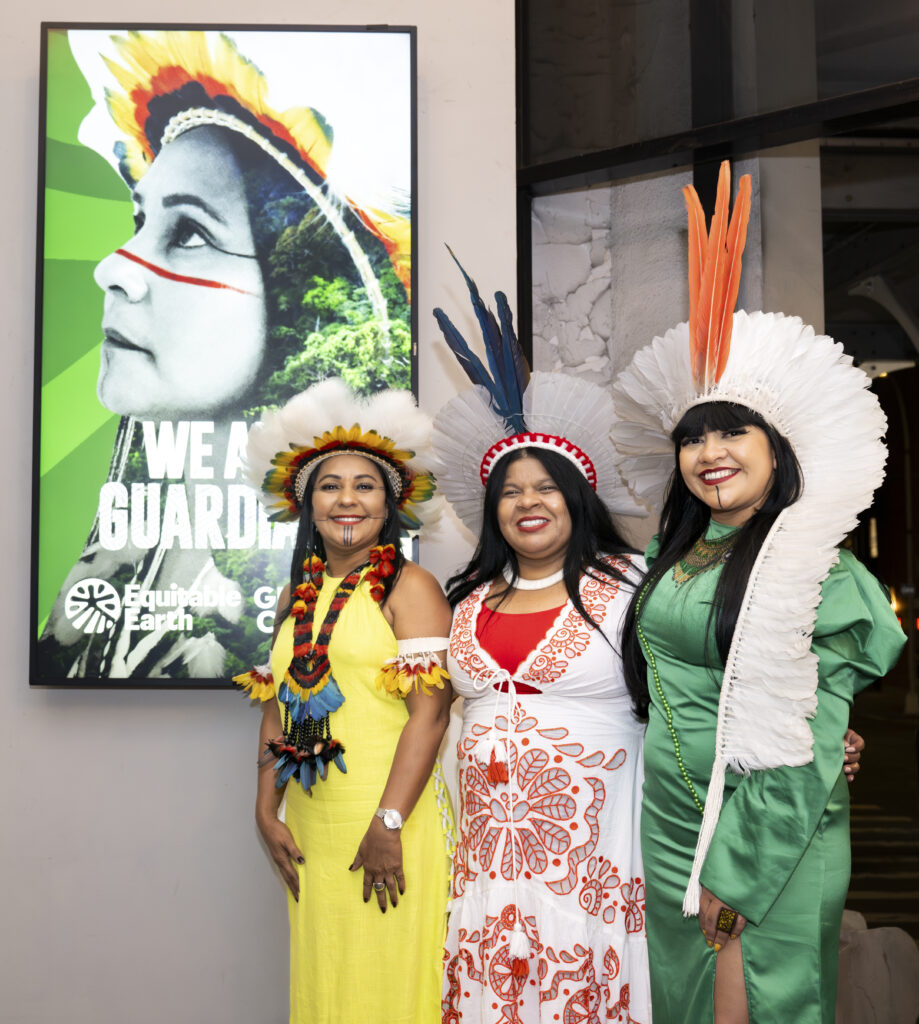
Appearing on stage to open the Global Citizen Festival in Central Park, Dr. JR Bananka, the Democratic Republic of the Congo country director for Wildlife Works, reminded the assembled crowd of thousands of people:
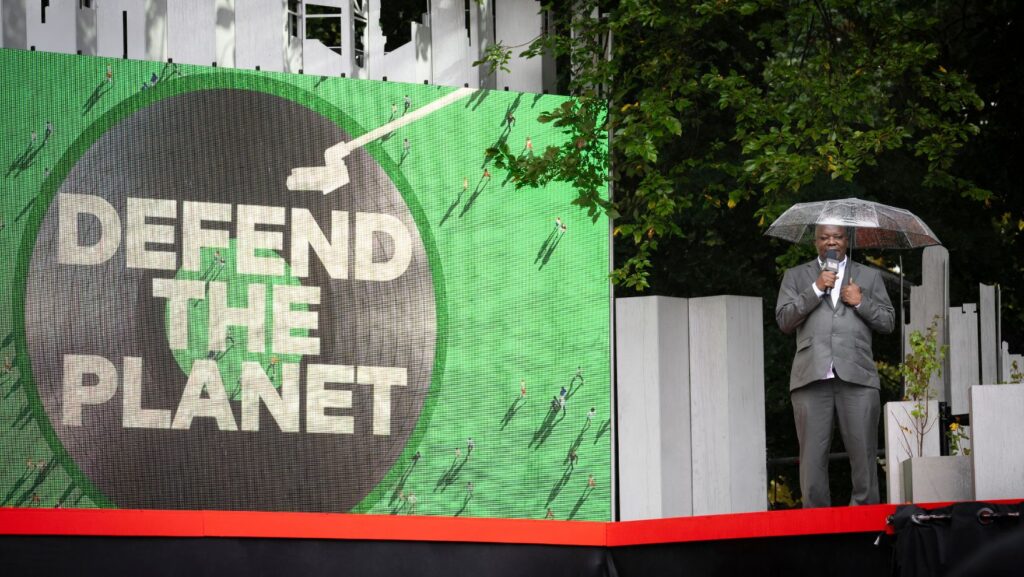
“Forest destruction is one of the leading causes of climate change, and we must act now to protect our forests. This effort cannot succeed without the leadership of forest communities.”
– Dr. J.R. Bananka
The Mai Ndombe REDD+ Project in the Democratic Republic of the Congo is a leading example of how nature-based solutions are tackling deforestation and protecting biodiversity through continuous partnerships and sustainable livelihoods for local communities. By securing land rights, creating new economic opportunities, and safeguarding biodiversity, projects like this one in the DRC – which protects over 300,000 hectares of forest and its inhabitants – are critical in the global fight against climate change.
Speaking at a roundtable event, “New forest carbon standards and monitoring technologies – solutions out of the VCM crisis?” presented by our dMRV partner Chloris Geospatial, Mike Korchinsky reflected on the origins of Equitable Earth, the role of technology and local communities in forest conservation, and the meaning of value and cost in the solutions to our climate crisis:
“So why the new standard? We felt that the carbon market was really not yet a market, it was still an experiment in a market. It needs to be 200 times as big as it has been in order to be successful. And in doing so, we can’t entirely rely upon one standard. We felt that there was a need for a standard that was really focused on equity for those communities in the Global South.
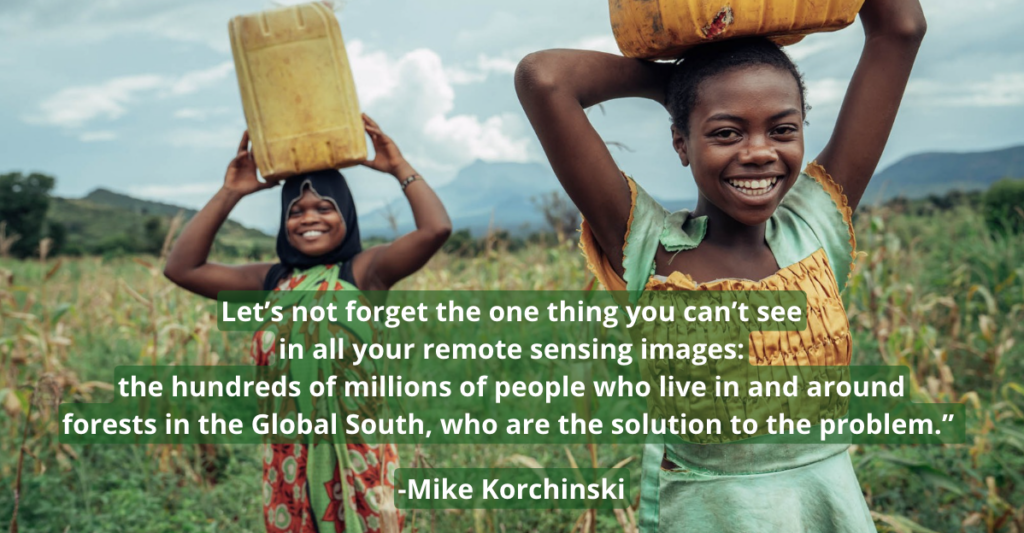
“Equitable Earth came out of that process, of thinking about how you would create a just standard for the hundreds of millions of people – and let’s not forget that’s one thing you can’t see in all your remote sensing images, are the hundreds of millions of people who live in and around forests in the Global South, who are the solution to the problem. They’re not the problem. We need to figure out how to engage them better.
“When we talk about the cost and price [of climate finance] it makes me very nervous. What we should talk about is value, and what is the value to the global society of finding solutions for these communities so that we can continue to conserve forests and biodiversity. That value shouldn’t be capped by some artificial idea of what it costs us to do it.
“The definition of quality can’t just be about the technical aspect. It has to be about the impact that it’s having on the ground and the people who live in the forests. Safeguarding biodiversity and Indigenous People must be a minimum criteria for issuing carbon credits.
“Because as we know, it’s costing us a fortune every day not to do it. So that’s the focus we have with Equitable Earth, is how do we create a just standard that will help engage those communities in a positive way in a market that does have the wealth and the desire to solve that problem.”
– Mike Korchinsky